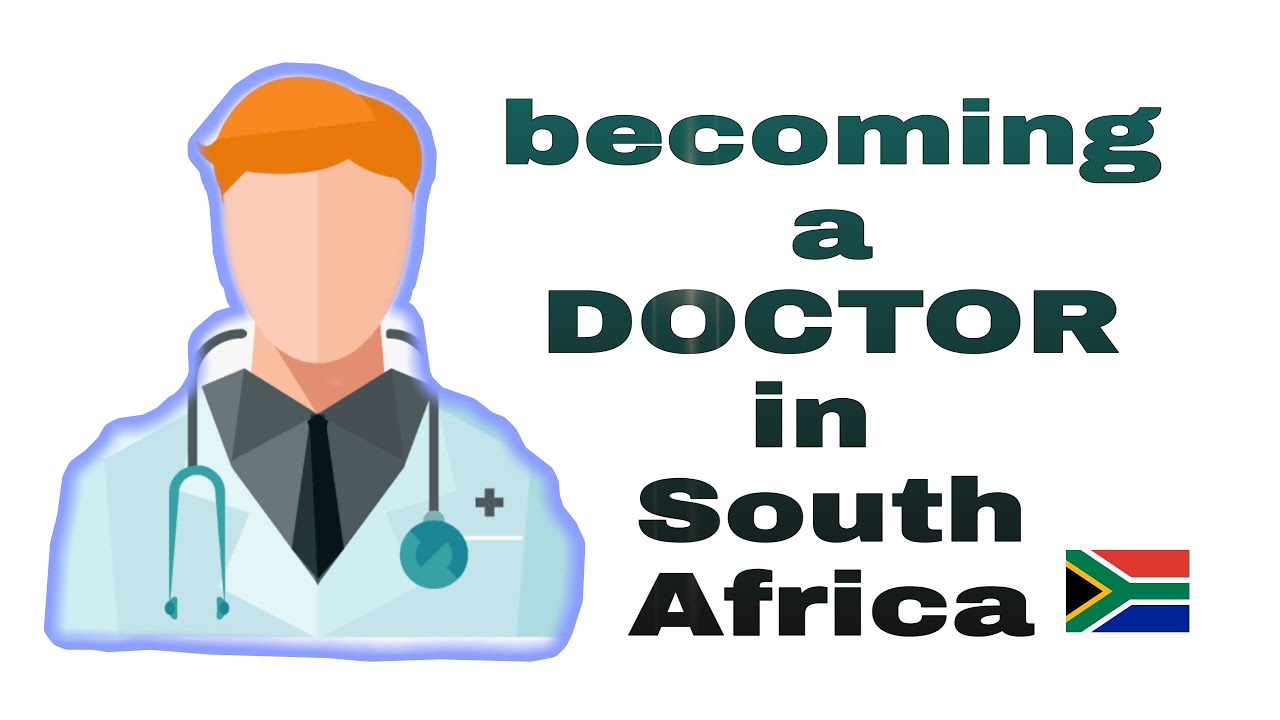Pursuing a Medical Degree in South Africa: The Path to Becoming a Doctor
South Africa boasts a robust medical education system, offering aspiring medical professionals the opportunity to earn the prestigious Bachelor of Medicine and Bachelor of Surgery (MBChB) degree.
This degree serves as the standard qualification for practicing medicine in the country and equips graduates with the knowledge and skills necessary for a successful medical career.
Let’s explore the journey to becoming a doctor through the MBChB program in South Africa.
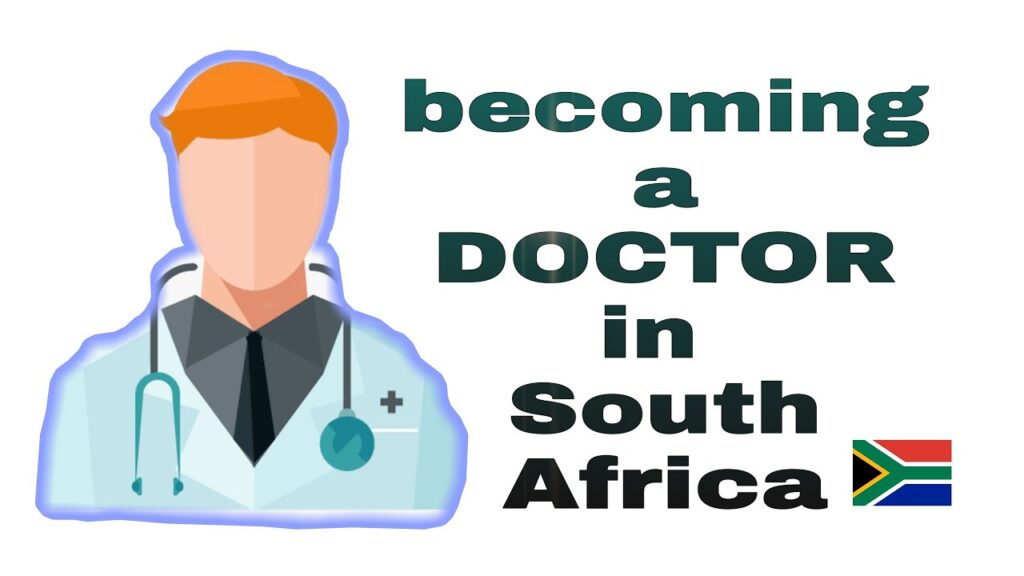
Eight Accredited Medical Schools
In South Africa, there are eight esteemed institutions that offer the MBChB degree:
- University of Cape Town (UCT)
- University of the Witwatersrand (Wits)
- Stellenbosch University (SU)
- University of KwaZulu-Natal (UKZN)
- University of Pretoria (UP)
- University of the Free State (UFS)
- Walter Sisulu University (WSU)
- Sefako Makgatho Health Sciences University (SMU)
Exploring the Esteemed Medical Schools Offering MBChB Degrees in South Africa
South Africa takes pride in its robust medical education system, and aspiring medical professionals have the privilege of pursuing the prestigious Bachelor of Medicine and Bachelor of Surgery (MBChB) degree.
This degree serves as the gateway to a rewarding medical career, and it is offered by eight esteemed institutions across the country.
Let’s delve into the details of these reputable medical schools and the opportunities they offer to future doctors.
1. University of Cape Town (UCT)
The University of Cape Town stands as a beacon of academic excellence, and its medical program is no exception.
With a rich history and a commitment to cutting-edge research, UCT equips its medical students with the knowledge and skills needed to excel in the medical field.
Visit the school’s website here.
2. University of the Witwatersrand (Wits)
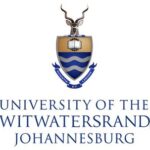
Known for its rigorous academic standards, the University of the Witwatersrand provides a comprehensive medical education.
Wits is renowned for producing well-rounded medical professionals who contribute significantly to healthcare in South Africa and beyond.
Visit the school’s website here.
3. Stellenbosch University (SU)
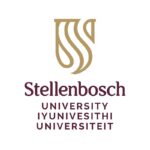
Stellenbosch University is celebrated for its innovative approach to medical education.
With a focus on community engagement and research, SU empowers its medical students to make a meaningful impact on healthcare delivery.
Visit the school’s website here.
4. University of KwaZulu-Natal (UKZN)
The University of KwaZulu-Natal is dedicated to producing compassionate and skilled medical professionals.
Through a blend of theoretical knowledge and practical training, UKZN prepares its students to provide top-notch medical care.
Visit the school’s website here.
5. University of Pretoria (UP)
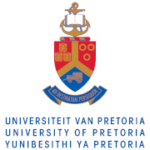
The University of Pretoria’s medical program emphasizes the importance of holistic patient care.
UP’s commitment to research and clinical training equips its graduates with the ability to tackle complex medical challenges.
Visit the school’s website here.
6. University of the Free State (UFS)
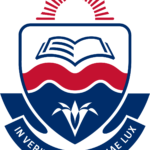
With a focus on inclusivity and diversity, the University of the Free State offers a comprehensive medical curriculum.
UFS’s approach to medical education prepares graduates to serve diverse communities with empathy and expertise.
Visit the school’s website here.
7. Walter Sisulu University (WSU)
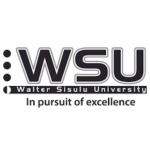
Walter Sisulu University is dedicated to addressing healthcare disparities in underserved areas.
WSU’s medical program equips students with the skills to make a meaningful impact on the health and well-being of marginalized communities.
Visit the school website here.
8. Sefako Makgatho Health Sciences University (SMU)
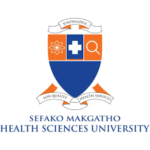
Sefako Makgatho Health Sciences University is committed to producing medical professionals who embody excellence and integrity.
SMU’s holistic approach to medical education prepares graduates to address a wide range of medical challenges.
Visit the school website here.
Nurturing the Future of Medicine
Each of these eight medical schools in South Africa plays a pivotal role in shaping the future of medicine in the country.
Through rigorous academic programs, practical training, and a commitment to research, they empower their graduates to excel in their medical careers and contribute to the well-being of society.
Aspiring medical professionals have the privilege of choosing from these esteemed institutions, embarking on a journey that will ultimately lead to a fulfilling and impactful medical career.
Admission Requirements
To gain admission into these medical schools, aspiring students must fulfill several prerequisites.
These include:
- A strong academic record.
- Completion of required prerequisite courses.
- A competitive score on the National Benchmarking Examination (NBME).
The Rigorous Curriculum
The MBChB degree program spans a duration of six years and is characterized by its comprehensive and rigorous curriculum.
Core subjects include anatomy, physiology, biochemistry, pharmacology, pathology, microbiology, and clinical medicine.
This well-rounded education ensures that future doctors possess a solid foundation in the medical sciences.
Beyond the Classroom
While the classroom forms the foundation of medical education, practical training is equally vital.
After completing the MBChB program, students embark on a journey that involves:
- A one-year internship to gain hands-on clinical experience.
- A two-year community service program that serves underserved areas.
Registration and Licensure
Upon fulfilling these requirements, graduates are eligible to apply for registration with the Health Professions Council of South Africa (HPCSA).
This is a crucial step toward obtaining the necessary licensure to practice medicine in the country.
How many years of study to become a doctor in South Africa
Embarking on the path to become a doctor in South Africa is a transformative journey that demands dedication, academic rigor, and a commitment to service.
With a total duration of six years, this voyage not only equips aspiring medical professionals with the skills and knowledge needed to excel in healthcare but also shapes them into compassionate caregivers.
Let’s explore the detailed timeline of this profound journey:
Year 1: Building the Foundation
The first year is dedicated to laying a strong foundation in the foundational sciences.
Students immerse themselves in subjects like anatomy, physiology, biochemistry, and more.
This critical phase establishes the fundamental understanding necessary for more advanced medical studies.
Year 2: Exploring Clinical Sciences
In the second year, the focus shifts towards clinical sciences.
Students delve into subjects such as pharmacology, pathology, microbiology, and others that provide insights into the intricacies of disease processes and treatment modalities.
Year 3: Venturing into Clinical Rotations
The third year marks a pivotal transition as students begin their clinical rotations.
They engage with various specialties, including obstetrics and gynecology, pediatrics, surgery, and more.
This hands-on experience introduces them to the dynamic nature of patient care.
Year 4 and 5: Deepening Clinical Knowledge
Continuing the clinical rotations, the fourth and fifth years provide students with comprehensive exposure to a wide range of medical disciplines.
These years refine their clinical skills, enabling them to assess patients, make diagnoses, and understand treatment strategies.
Year 6: The Internship Year
The sixth year culminates with the completion of the Bachelor of Medicine and Bachelor of Surgery (MBChB) degree.
This achievement is celebrated, but the journey is not yet over.
The final year is dedicated to a rigorous internship program, during which students gain practical experience in a clinical setting.
This immersive training allows them to apply their knowledge to real-life medical scenarios.
Year 7: Serving the Community
After successfully completing the internship, students embark on a two-year community service program.
This phase provides them with the opportunity to contribute their expertise to underserved communities.
It’s a chance to make a tangible impact and extend healthcare to those who need it most.
What the entrance requirements are for doctor course
Becoming a doctor is a noble pursuit that requires dedication, academic excellence, and a passion for healthcare.
If you’re considering enrolling in a doctor course in South Africa, it’s essential to be well-versed in the entrance requirements set by various medical schools.
While specifics may differ, there are general prerequisites that aspiring medical students must typically meet.
Let’s explore the common and specific entrance requirements for doctor courses at prominent medical schools in South Africa:
General Entrance Requirements
Common entrance requirements for medical schools in South Africa often encompass the following criteria:
- Academic Excellence: A strong academic track record is essential. Most schools require a minimum of 70% in the National Senior Certificate (NSC) or its equivalent.
- Prerequisite Courses: Completion of specific prerequisite courses is vital. These typically include mathematics, physics, chemistry, biology, and English. These subjects lay the foundation for a comprehensive medical education.
- National Benchmarking Examination (NBME) Scores: Satisfactory scores on the NBME are usually mandatory. This standardized test assesses applicants’ readiness for medical studies and gauges their scientific and verbal reasoning skills.
- Personal Statement and Recommendations: Aspiring medical students are often required to submit a personal statement that highlights their motivation, goals, and passion for medicine. Letters of recommendation from educators or professionals further endorse their candidacy.
- Interview: An interview serves as a platform for applicants to showcase their interpersonal skills, dedication, and alignment with the values of the medical school.
- Work Experience: Some institutions may value applicants who have gained relevant work experience in healthcare settings. This experience demonstrates a genuine commitment to the field.
Specific Entrance Requirements
Here are the entrance requirements for doctor courses at some prominent medical schools in South Africa:
- University of Cape Town (UCT):
- NSC with a minimum of 70% in English, mathematics, physical science, life sciences, and two other subjects.
- NBME scores of at least 300 for the science section and 200 for verbal reasoning.
- Personal statement and two letters of recommendation.
- Interview.
- University of the Witwatersrand (Wits):
- NSC with a minimum of 70% in specified subjects.
- NBME scores of at least 300 for science and 200 for verbal reasoning.
- Personal statement and two letters of recommendation.
- Interview.
- Stellenbosch University (SU):
- NSC with a minimum of 70% in specified subjects.
- NBME scores of at least 275 for science and 200 for verbal reasoning.
- Personal statement and two letters of recommendation.
- Interview.
Preparing for Success
The entrance requirements for medical school in South Africa are competitive, reflecting the rigorous nature of the medical profession.
As an aspiring medical student, it’s crucial to initiate preparation early.
Focus on excelling academically, mastering prerequisite subjects, acing the NBME, and accumulating relevant work experience.
Your personal statement and recommendations should convey your genuine passion for healthcare and your readiness to contribute positively to the medical community.
For comprehensive information on entrance requirements for doctor courses at specific medical schools, I recommend visiting the official websites of the institutions that pique your interest.
This proactive approach will ensure that you are well-prepared and positioned for success in your pursuit of a medical career.
Shortest Time to Become a Doctor in South Africa
The journey to becoming a doctor in South Africa is a deeply rewarding one, but it requires a significant investment of time and dedication.
The standard timeframe for earning the esteemed Bachelor of Medicine and Bachelor of Surgery (MBChB) degree, which is the cornerstone of a medical career in the country, is 6 years.
Let’s explore the details of this timeline, as well as avenues for shortening the path and the importance of thorough research.
The MBChB Journey: A 6-Year Commitment
Completing the MBChB degree in South Africa is a comprehensive process that spans 6 years.
During this period, students engage in a rigorous curriculum that encompasses a wide range of subjects, establishing a robust foundation in medical sciences.
The coursework typically includes anatomy, physiology, biochemistry, pharmacology, pathology, microbiology, and clinical medicine.
This comprehensive education is essential to prepare future doctors for the challenges and responsibilities that lie ahead.
Practical Training: Internship and Community Service
Upon successfully completing the MBChB degree, the journey continues with a mandatory one-year internship.
During this immersive experience, students gain firsthand exposure to the realities of clinical practice, refining their skills and deepening their understanding of patient care.
Following the internship, a two-year community service program is undertaken.
This phase offers aspiring doctors the opportunity to contribute their expertise to underserved communities, making a positive impact on healthcare accessibility.
Exploring Expedited Pathways
While the standard timeframe for becoming a doctor is 6 years, there are pathways that offer shorter routes, catering to individuals with varying circumstances:
- Bridging Programs: Students who possess a related degree, such as biology or chemistry, can opt for bridging programs. These condensed programs typically span 2-3 years and are designed to fast-track individuals into the medical field.
- Part-Time Study: Choosing to study part-time allows for a more flexible approach, extending the completion of the MBChB degree to 7-8 years. This option can accommodate individuals who have other commitments or responsibilities.
Thorough Research: A Key to Informed Choices
If you aspire to become a doctor in South Africa, meticulous research is vital.
Every medical school may have specific requirements, program structures, and options for expedited pathways.
Understanding the offerings of each institution empowers you to make informed decisions aligned with your goals and circumstances.
Your Path to Healing and Care
While becoming a doctor is a demanding endeavor, the intrinsic rewards of positively impacting lives and contributing to the healthcare landscape are immeasurable.
Whether you choose the standard 6-year path or an expedited option, the commitment to excellence and service remains constant.
Remember, the journey to becoming a doctor is a personal one, shaped by your aspirations and circumstances.
By gathering insights, exploring pathways, and aligning your choices with your passion for healthcare, you’ll pave the way for a fulfilling medical career in South Africa.
Marks/results needed to become a doctor in South Africa
Embarking on a journey to become a doctor in South Africa is a pursuit marked by academic excellence, dedication, and a genuine commitment to healthcare.
While the specific marks or results required for entry vary among medical schools, there are overarching prerequisites that aspiring medical students typically need to meet.
Here’s a comprehensive look at these requirements, including specific criteria set by esteemed medical institutions:
Common Entrance Requirements
The common entrance requirements for medical schools in South Africa revolve around several key factors:
- Strong Academic Record: A solid academic foundation is crucial. Most institutions expect a minimum of 70% in the National Senior Certificate (NSC) or an equivalent qualification.
- Prerequisite Courses: Successful completion of prerequisite courses is essential. These typically encompass mathematics, physics, chemistry, biology, and English. These subjects lay the groundwork for a comprehensive medical education.
- National Benchmarking Examination (NBME) Scores: Satisfactory scores on the NBME are usually mandatory. This standardized assessment evaluates applicants’ scientific knowledge and verbal reasoning abilities.
- Personal Statement and Recommendations: Aspiring medical students often need to submit a personal statement detailing their motivation and aspirations. Letters of recommendation further validate their suitability for medical studies.
- Interview: An interview is a platform for applicants to showcase their interpersonal skills, commitment, and alignment with the medical school’s values.
- Work Experience: Some institutions may require applicants to have engaged in healthcare-related work experiences, demonstrating their genuine interest in the field.
Specific Marks or Results for Select Medical Schools
Here are the specific marks or results required by some distinguished medical schools in South Africa:
- University of Cape Town (UCT):
- NSC with a minimum of 70% in English, mathematics, physical science, life sciences, and two other subjects.
- NBME scores of at least 300 for the science section and 200 for verbal reasoning.
- University of the Witwatersrand (Wits):
- NSC with a minimum of 70% in specified subjects.
- NBME scores of at least 300 for science and 200 for verbal reasoning.
- Stellenbosch University (SU):
- NSC with a minimum of 70% in specified subjects.
- NBME scores of at least 275 for science and 200 for verbal reasoning.
Navigating Your Path
The pursuit of becoming a doctor is a personal and transformative journey. Aspiring medical students are encouraged to conduct thorough research into the entrance requirements of their preferred institutions.
By aligning your academic efforts, prerequisite course achievements, NBME performance, and practical experiences with the expectations of each medical school, you’ll enhance your chances of a successful application.
Remember, the marks or results needed to become a doctor reflect the high standards of the medical profession.
By proactively preparing, showcasing your passion, and understanding the unique expectations of each institution, you’ll set the foundation for a rewarding medical education and a fulfilling career dedicated to healing and healthcare.
To learn about specific marks or results needed, visit the official websites of the medical schools you’re interested in.
A Rewarding Path
Becoming a doctor in South Africa requires dedication, hard work, and a passion for healing. While the journey is challenging, it is also incredibly rewarding.
The privilege of making a positive impact on individuals’ lives, coupled with the opportunity to contribute to the overall health and well-being of communities, makes the pursuit of a medical career truly fulfilling.
If you possess a deep sense of empathy, a thirst for knowledge, and the determination to excel, the path to becoming a doctor in South Africa might be the right one for you.

